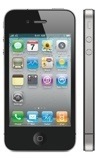Another day, another lawsuit. Well, two actually. One lawsuit is against Apple, accusing the company of privacy violations for the way it shares information collected from iPhone, iPad and iPod Touch users with advertisers.
The suit was filed last Thursday on behalf of an Apple user in California and seeks class-action status. According to “PC World” (http://macte.ch/UUTMY), it charges Apple with sharing information about users’ browsing history, application use and other personal details without their consent.
“Apple’s privacy policy is opaque and confusing but one thing is clear: it does not inform mobile device users that by providing application developers with their UDID, Apple enables them to put a name to highly personal and in many cases embarrassing information derived from app downloading activity and usage, and internet browsing history, that would otherwise be anonymous,” the suit reads.
The tracking is possible because Apple assigns a UDID (Unique Device Identifier) to each iPhone, iPod touch and iPad, and apps can access that number. Advertising companies figured out this number can be used for tracking, much like a cookie in a browser, says “Wired.”
If an app passes that number along to an advertiser, the advertising company can use it to build up a profile of the user, as well as keep track of which ads it has shown to a user before and which of those ads the user clicked on. “Wired” notes that, unlike browser cookies that you can block or delete, you can’t do this with apps that use the UDID, because the ID number can’t be changed. Developers sometimes sell the UDID collected data to tracking companies, the suit alleges.
The suit cites a” Wall Street Journal” article from December 2010 that says developers can combine the UDID with other personal information found on the device including user name and password, contacts, current location, and in some cases the phone owner’s name. It also cites a study by the director of information security and networking at Bucknell University, which found that many applications collect the UDID number and user login data that ties to a user account.
The suit claims that “such entities inherently have the ability to tie a UDID to a real-world identity,” although it doesn’t describe why they inherently have that ability, notes “PC World.”
Two similar lawsuits were filed last December in a federal court in Northern California and San Jose, California. . Both claim iPhones and iPads are encoded with identifying devices that allow advertising networks to track what applications users download, how frequently they’re used and for how long. The transmission of such data violates computer-fraud and privacy laws, per the suit.
A second lawsuit is against AT&T and claims that AT&T has “systematically” overcharged iPhone and iPad owners with capped data plans by inflating the amount of data they download and adding “phantom traffic.” The complaint, filed by Patrick Hendricks in federal court in California, claims that a “significant portion” of AT&T’s $1.1 billion of wireless revenue gains in the last quarter came from the bogus charges and overbilling, says “Computerworld” (http://macte.ch/sqijk).
Hendricks’ lawyers asked a judge to grant the lawsuit class-action status; if that happens, the case would be open to millions of iPhone and iPad owners in the U.S. Citing evidence obtained by a consulting firm hired by Henricks’ attorneys, the lawsuit contends that AT&T regularly overstates incoming data by 7% to 14%, and in some cases by as much as 300%.
“AT&T’s billing system for iPhone and iPad data transactions is like a rigged gas pump that charges for a full gallon when it pumps only nine-tenths of a gallon into your car’s tank,” the complaint states.
“Computerworld” says Hendricks’ suit also alleges that AT&T bills for data transfers that never took place. During a 10-day stretch, the same consulting firm found that AT&T billed a new iPhone’s account for approximately 2.2MB of data transfers, even though the smartphone had had all push notification and location services disabled, no e-mail account configured, and no active apps, the article adds.
— Dennis Sellers
dsellers@applecentral.com




